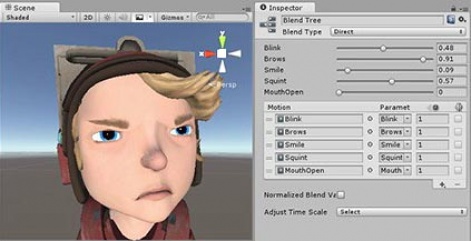Do you want to see the most concrete evidence that free-to-play gaming is here to stay?
At GDC 2015, we got the ultimate signal it's not going anywhere.
And it wasn't from the companies you would have though. It was from Unity and Unreal making their engines free to use.
Unreal Engine 4 shifted from a subscription model to a pure royalty model, taking 5% of revenue after the first $3,000 each quarter, and offering source code access along with the package.
Unity 5 made its engine, with the core features, and the ability to export to all platforms, available to anyone for free via the Personal Edition. Once a developer hits a certain revenue threshold, they have to upgrade to the Pro licence, which adds more development and build features.
New point of equilibrium
Looking at these moves from a larger cultural perspective, we're at a point where game engines can't sell up front any more.
There's too many competitors, so engine companies have to offer something for free - and to an increasing degree, the entire engine has to be up for grabs - and then try to make their money from their successful clients.

And that's exactly how the game developers who are using the engines generate their revenues too; it's the free-to-play model.
One significant consequence of such a move for the game companies is it brings people into the industry who might not have come up through the traditional game-making channels.
If technologies becoming accessible means gaming is becoming a purple-haired hugbox, then I welcome it.
We saw it at GDC 2015 reflected in the record attendance, the more women speakers than ever before; and even the reports of the show being a purple-haired hugfest.
That's a byproduct of the opening of game tools to everyone: more people can create stuff.
It's not scaring anyone away: attendance was higher than ever, and there were still plenty of dudes in suits, and dudes in t-shirts, and dudes and gray hoodies. But I feel like women, and people with neon hair were there in greater force than before.
And you have Japanese indie developer Ojiro Fujimoto, who has gone from not knowing how to make games, to grabbing a copy of GameMaker (as catalogued in Cara Ellison's Embed With series), and making Downwell, an IGF-nominated game that was picked up by hip publisher Devolver Digital and is a hotly-anticipated mobile title.
The opening of the culture and of the tools enables this. And there was tons of cool stuff from all over the world at the IGF showcase, GDC Play, Alt.Ctrl.GDC, and the Indie Megabooth.
So yeah, if technologies opening up and becoming accessible means gaming is becoming a purple-haired hugbox, then I welcome it. I get that culture change is scary, but welcome it, embrace it!
Dogs wags the tail
As it is with engines, so it is with games. I get scoffed at sometimes when I say that free-to-play is an inevitability.
But if the economices of game development market is causing tools to go free-to-play, why won't games be the same way? Games have gone the route because as soon everyone had capable gaming device in their pocket, F2P was the easiest way to access an audience and generate revenue.
As soon everyone had capable gaming device in their pocket, F2P was the easiest way to generate revenue.
We also see it on PC as free-to-play games are the ones drawing some of the biggest communities, from MOBAs to Hearthstone. Minecraft may not have succeeded as a free-to-play title at release, but I believe someday Microsoft will make it so - even modding communities have free-to-play elements on their custom servers.
Paying for things up front will become a niche - one that some will survive in, sure, but so many are already struggling in it. Free-to-play isn't necessarily green pastures for indies, but mobile and advertising are opening up the doors.
Crossy Road is an outlier, but a promising one.
Free-for-all
Just think about it this way - if the tools developers make games with can't sell up front, why will the games they make work as pay-up-front games?
In 5 years from now, max, I think free-to-play across gaming will be like it is on mobile: the assumed default, and paid will be the exception, used primarily by indies and/or idealists.
Consoles and handhelds will adapt or die, and holdout gamers will come along as they either see free-to-play isn't really that evil as more games take advantage of it, or they just reluctantly accept it.
The shift makes too much sense - I've thought this way for a while now. But maybe it took Unreal and Unity's moves against each other to really convince me.
The free-to-play future is coming to all gaming because it's come to the tools all game developers use.





















